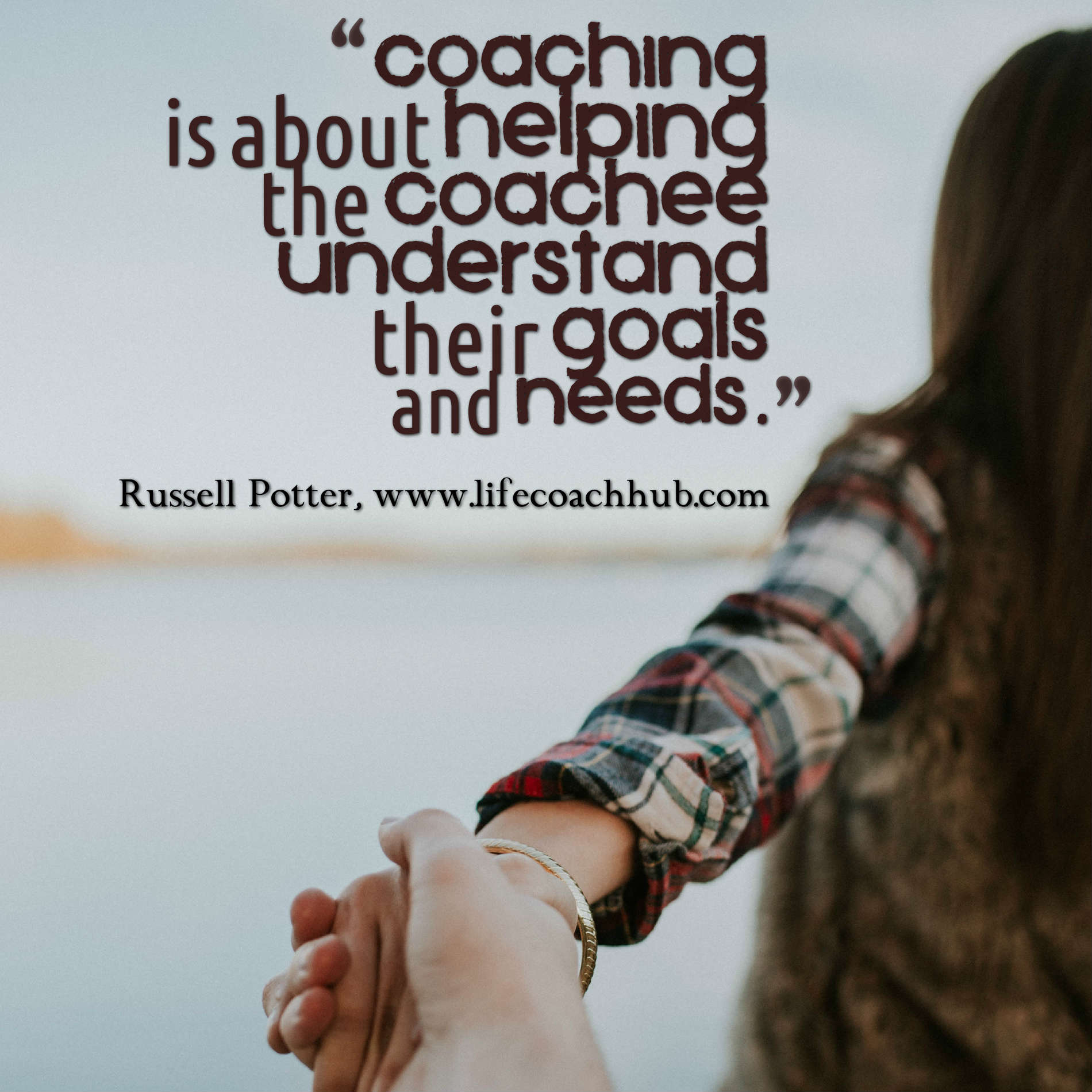
About Life Coaching
Life coaching has grown in popularity over the past 20 years as a way to realize goals and fulfill our potential. Although the process itself is very simple, the execution is more akin to an art than a science yet neuroscience shows conclusively that coaching had benefits.
Research from Price Waterhouse Coopers, commissioned by the International Coaching Federation shows that more than 70% of those who invested in coaching of all types, reported a positive return on investment. This comes as no surprise. When done well, life coaching is a powerful way to achieve personal breakthroughs and in this article, I will share the process, shine some light on what to expect as a coachee (the term we use for the person being coached), as well as some insider tips to get the very most out of your life coaching experience.
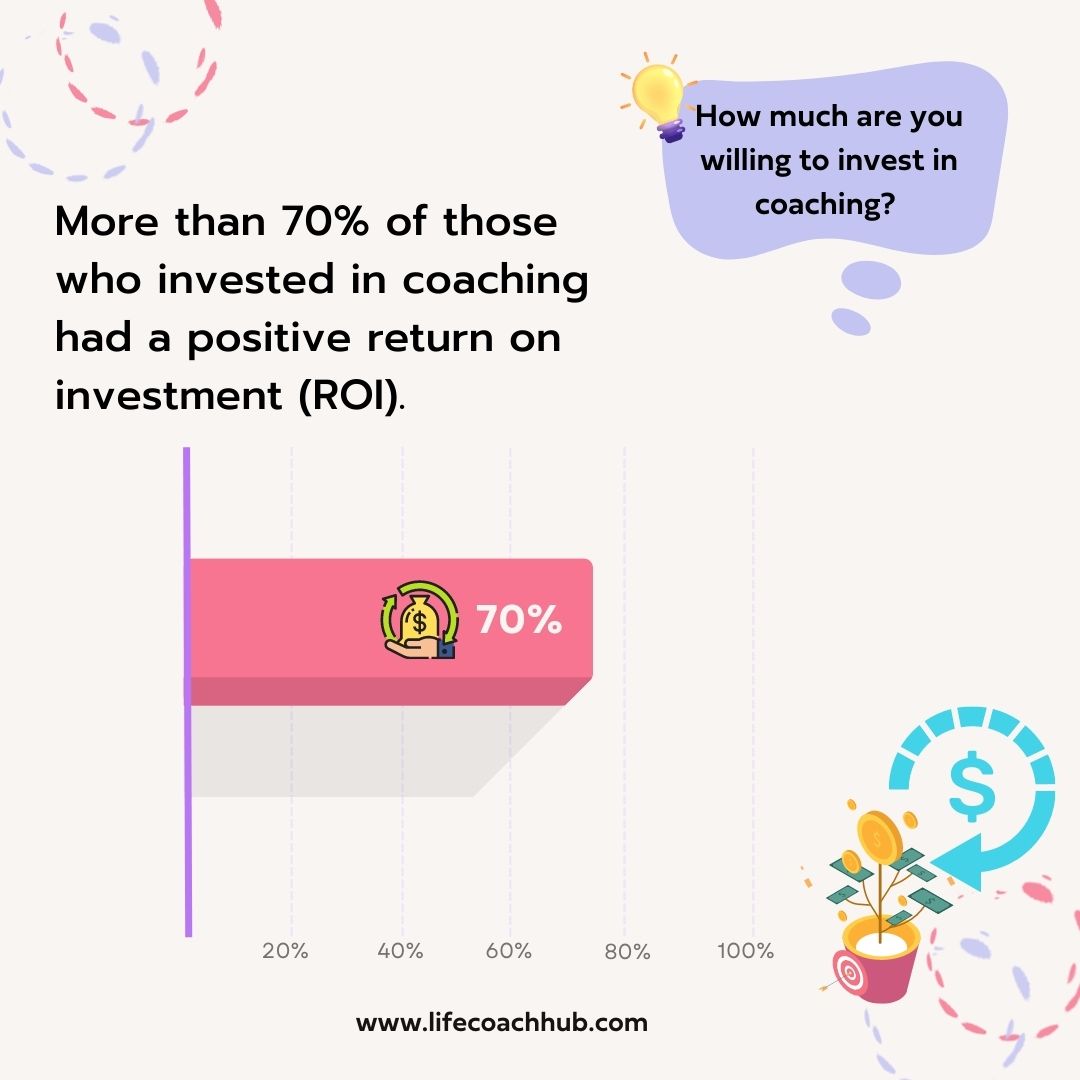
What is Life Coaching?
First, let’s answer the question “What is life coaching.” Very simply, life coaching is the process of defining a person’s goals and needs, helping them to explore the current reality around the goal in great depth, crystalizing options and obstacles to achieving the goal, and then committing to a specific course of action.
Nearly all life coaches use this model known as the GROW model, goals, reality, options, and obstacles, and then what will I commit to. I know the W is there for the acronym expedience, but you get the point. The GROW model is popular firstly because it's required to be a certified ICF coach and secondly because it works.
How Does Life Coaching Differ from other Forms of Coaching?
Life coaching is not sports coaching. One of the confusions around life coaching relates to the perception of coaching as giving advice. Whilst this may be true in sports coaching, it’s not true in life coaching.
Many people associate coaching with sports coaching in which instructions are given in great detail to the players but life coaching is very different. Life coaching is about helping the coachee discover the solution by themselves. Our job as life coaches is NOT to make the coachee dependent on us, rather it is to help them to full independence and the achievement of their goals.
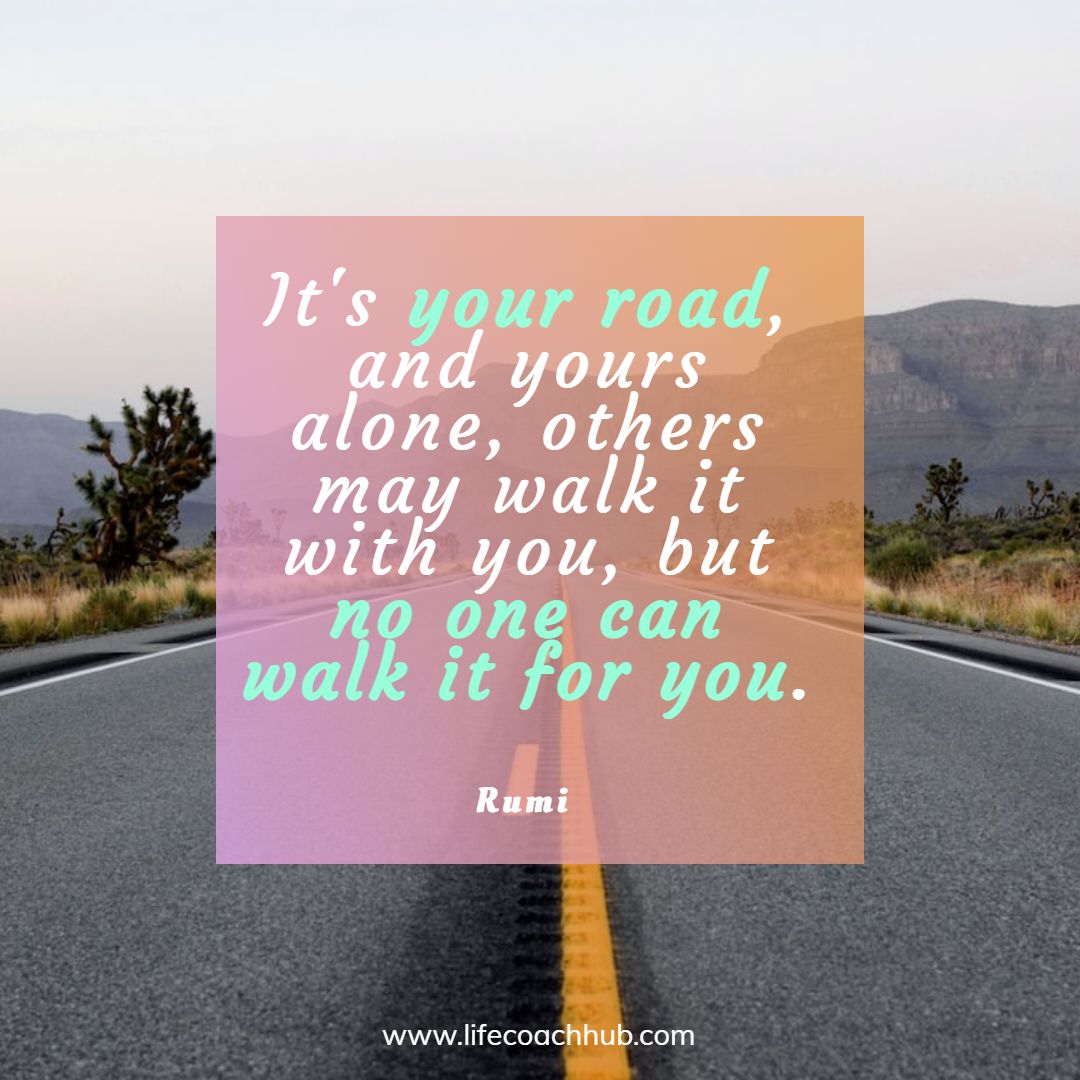
Another key difference of life coaching relates to a focus on empathy and understanding treating each coachee as an individual with a very personal reality and challenges.
Most qualified coaches will follow the GROW model and advice will be kept to a minimum until the goals and reality are fully explored and the coachee has created a strategy by themselves in the session. This is powerful because the only good solution is a solution that fits the coachee’s personal circumstances, not the life coaches.
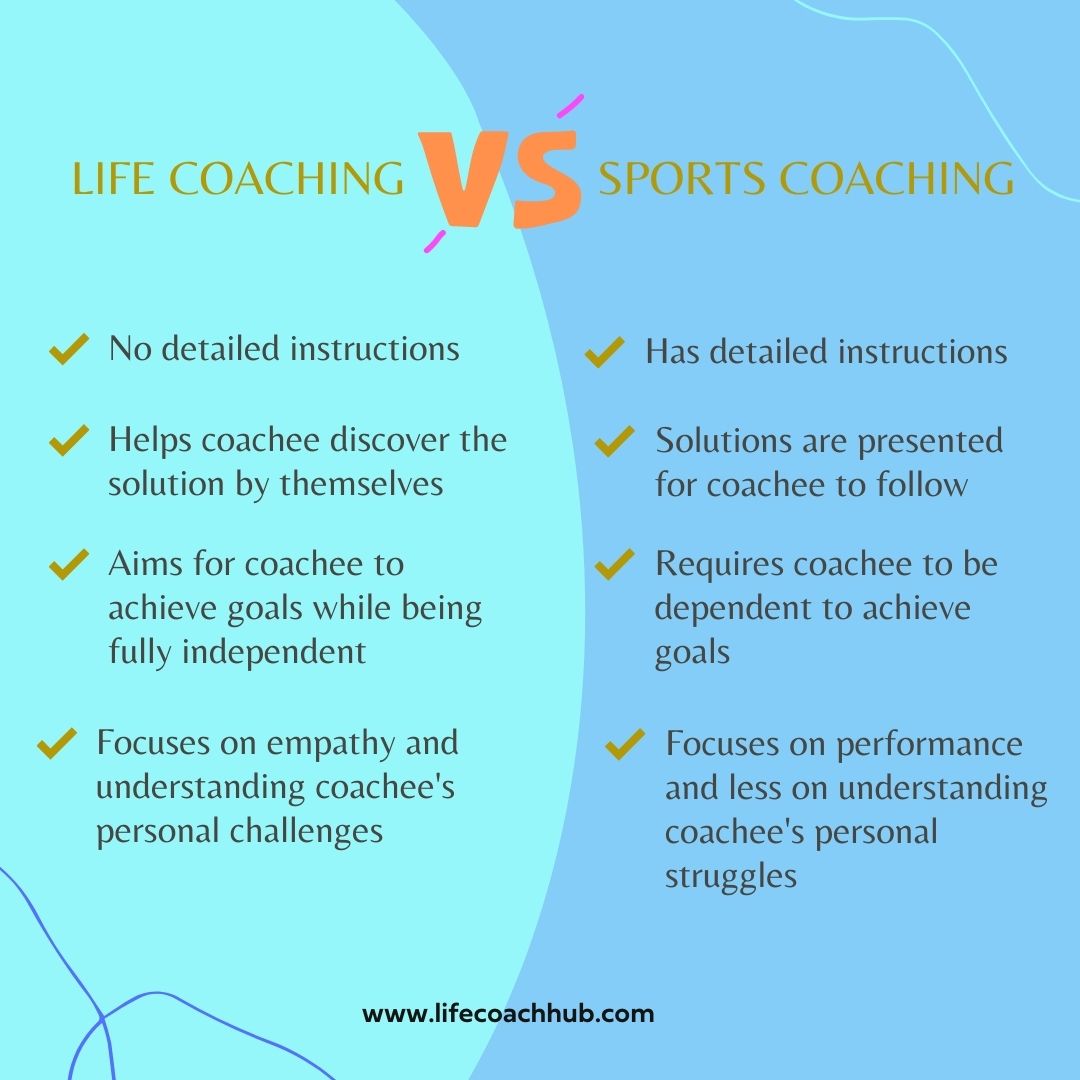
Coaching is about helping the coachee to understand their goals and needs, understanding why they have the goal, and the reasons they haven’t achieved it, and then helping them to formulate a strategy to move forward. Life coaches may have a specialism based on many years of experience in business, leadership, wellness, etc. Only in the last stage will a specialist life coach offer advice, when asked. This often comes as a surprise to the coachee.
It’s important to choose a life coach that fits your needs although, as we will see later, what the coachee believes is their immediate goal may not be their number one need. For that reason, any coach must have the fundamental life-coaching ability above and beyond their technical specialism.
This is not only because the coachee may not know their true goal, but the coachee will almost certainly have an emotional blockage that’s holding them back. An invisible hand they never knew existed that’s preventing progress. Skill can be learned for free on YouTube, emotional blocks take time, skill, and deep guided introspection.
Is there a Difference Between a Goal and a Need?
The power of coaching is aligning our needs and goals and in nearly all sessions the goal presented will change to match the need.
In my years of life coaching, nearly every coachee starts the session with a goal that is usually related to control of others, the self, or a situation.
-
“How can I deal with this situation”
-
“My employees don’t do what I ask, can you help?”
Coachees usually start the process in a state of emotional stress which forms the trigger.
Although all coaches will have different methods, my first task is to assess the goal and then determine if there is a fundamental unmet need that, subconsciously is making its presence felt.
For example, a coachee may present a goal of wanting to find purpose in their life but on exploring their reality a little, we discover that there are unmet physiological needs and financial security needs, often denied, that are causing what’s called cognitive dissonance.
Cognitive dissonance is a stressful feeling we get when we are wrong, have to make a very difficult choice, feel guilt, or when we are procrastinating around acting on a fundamentally important need. Specific brain regions are activated that make us feel uncomfortable in an attempt to motivate us to act yet, ironically, we have many defense mechanisms to protect us from the feeling which include denial, downplaying, and sometimes defensiveness.
The power of coaching is aligning our needs and goals and in nearly all sessions the goal presented will change to match the need. This moment is often a HUGE relief for the coachee who then finds great motivation to take real action.
Again, not all life coaches work like this and many will ignore the need in favor of the presented goal. I believe in doing the hard work of creating a rock-solid foundation for future success.
What can I Expect from my Life Coaching Sessions?
With a life coaching session, you can expect to do a lot more work than you may have initially thought and you can expect to feel more self-confidence and personal energy by the end. Before the coaching relationship, a goal is usually established, something that you want to achieve but may be struggling with, and a schedule for the 1st session is agreed upon.
In the 1st session you will be asked about your goal and to share the details of your life that relate to it. All life coaches, no matter the specialism, will need to fully understand your life and current situation and the process of talking about your life will help you tremendously to see things from a perspective. We often spend so much time in our heads that our thoughts become muddled.
A good life coach will...
-
Give you the space
-
Ask the right questions
-
Help you to bring your thoughts into perspective so that you can find the clarity you need to move forward.
A good life coach is one of the best listeners you will ever meet. This is the skill of the life coach. You can expect the following:
-
Not to be judged
-
Not be interrupted
-
To be listened to
-
To be completely understood
A skilled life coach is trained not to think of what to say next, they are trained to reflect your thoughts, validate your emotions and ask the questions that you may not have asked yourself. Often the questions will be the ones you have been unwilling to ask and in the life coaching session you have the chance to explore the reality in complete psychological safety.
-
You must expect complete confidentiality, a certified life coach is bound to a code of ethics that prevents the coach from sharing details of the life coaching session with others. Some clients will require the coach to sign an NDA at the beginning and the coaching contract will often state the confidentially of the relationship and details of discussions.
-
You can expect questions, a lot of questions. One of the great skills of a life coach is to listen without thinking about what to say next and then to ask a powerful question that helps the coachee towards awareness and an eventual solution. This will often come as a surprise to people who may have expected an advisory service and, although the advice will certainly be there if asked, the coachee will be encouraged to help themselves to the solution 1st.
- Finally, you can expect to feel very different after the life coaching sessions. Once the actual need is identified, the true goal is set and the identity/authentic self becomes more clear, coaches frequently say that they “feel like a different person.” A coachee recently remarked to me “You changed my life.” The emotional freedom and self-confidence that comes with the alignment with the self are highly energizing and a rewarding moment for both the life coach and the coachee who worked so hard in the sessions to achieve it.
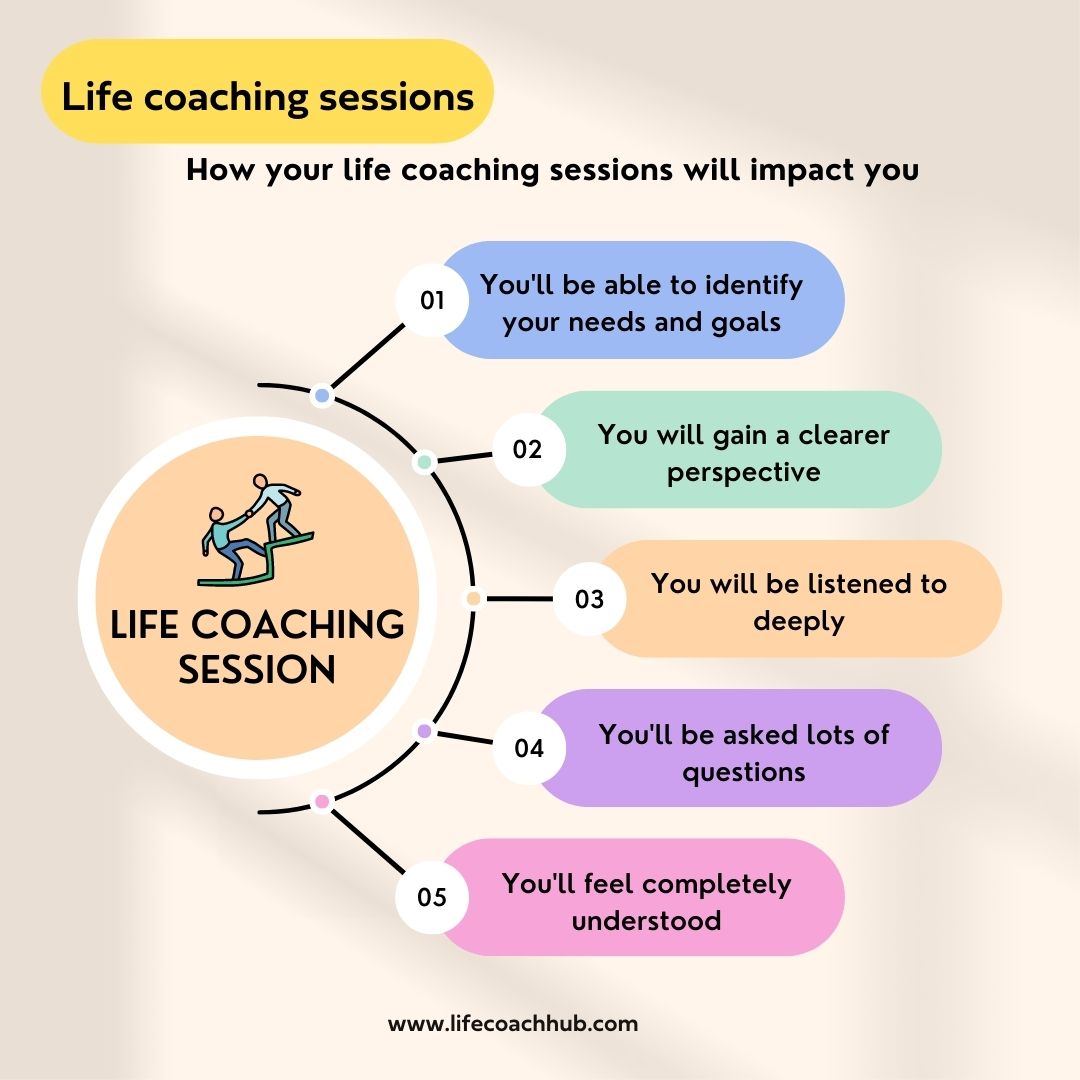
Choosing a Life Coach
Choosing the right coach for you is, of course, fundamentally important to the success of the coaching engagement. Nearly all life coaches will offer a complimentary trial session.
The reason is to ensure that the coachee feels comfortable with the life coach and this is vital. In the sessions, the coachee will only benefit if they feel psychologically safe enough to share their deepest feelings and beliefs.
The coachee is advised to see if they feel comfortable, that the life coach is professional and is actively listening, following a method and that they are appropriate in their conduct. If you feel uncomfortable in any way trust our gut feeling.
Our brains are designed to spot patterns of behavior in nature that are subtle yet so powerful that instinct is now considered a life-saving indicator by paramedics worldwide and taken very seriously by emergency crews. Trust yours too.
Ask for credentials. A life coach should have an ICF certificate or equivalent and many are also trained psychologists. The life coach's LinkedIn profile is a great place to check for references as they can be verified.
If you are seeking a specialist e.g. a success coach or leadership coach, ask for their credentials in this area.
-
How successful are they themselves and what evidence do you see for this.
-
If they are a wellness coach, what evidence do you see for this?
A great way to check is the articles and e-books that most coaches will have on their websites. A published author (ideally not self-published) is also a good way to check for credibility and indeed, to understand the thinking and strategy of the life coach.

Online Life Coaching or In Person?
Nearly all life coaches would prefer a face-to-face interaction as there is a better chance to see the complete picture in terms of emotion changes, body language, and posture changes and it's simply more personable. In reality, we rarely live close to a life coach and are limited in our choice, especially if we need a specialist life coach.
Almost all of my coaching sessions are online by skype or video app and many are done by telephone. In fact, many life coaches prefer the telephone medium over video. A skilled life coach is able to help the coachee to a breakthrough regardless of the medium and skype/online coaching has the distinct benefit of flexibility and convenience.
If you choose online life coaching, it's best to treat it as if you were attending an in-person session. You will need a quiet space where you will not be interrupted, somewhere where you can speak freely, and feel safe to say how you feel.
What do I get after a Life Coaching Session?
Although life coaches differ in their methods, I like to send the coachee detailed notes of the session afterward so that they do not have to take notes during the session, leaving them free to communicate deeply. This also helps to frame the week and commitments to be taken. The notes contain the previous week’s commitments creating accountability.
I also create wallpaper graphics for my coaches which they can use on their mobile phones which shows their goals and commitments. This is an excellent way to keep commitments and goals in the foreground.
Another useful addition is to send daily commitment reminders which ask the coachee how they have performed that day in relation to their commitments. This is especially valuable when the goal is behavior change.
Some life coaches will give you access to a forum of other coachees where experiences can be shared. This can be valuable for many people who seek others to share the same experience.

Is Life Coaching the Same as Therapy?
It is often said that life coaching looks to the future and that therapy/counseling looks to the past. In reality, they both look forwards and backward, but they differ in their approach and the depth to which they focus on each.
Generally, therapy/counseling is for people who are feeling emotional distress including depression, anxiety, or a range of mental and emotional health issues that are interfering with their daily lives. The symptoms can be very distressing and need a trained therapist or counselor to guide the patient back to health.
In life coaching, we are usually dealing with coachees who are frustrated and feeling great stress. The reasons, as mentioned previously, are often related to underlying emotional needs and this is where there can be some overlap. Even if the coachee is in full health emotionally, the reason for not achieving their goal will, from time to time, have some origin in the past, it would be naive to think otherwise.
A life coach may ask if there are any times in the past that may have created a block e.g. fear of success, a belief about love, or money. The coachee will usually be able to identify a previous situation, occasionally from childhood, that is causing the block. This is often where breakthroughs happen.
-
If the coachee is suffering from depression or other serious emotional health problems the life coach will usually refer the coachee to a counselor/therapist.
-
If there is depression or mental health issues present, it is important that the life coach does not attempt to tackle serious childhood trauma unless trained to do so. Serious childhood abuse should be addressed with a trained therapist who has a range of effective techniques to help. Remember to vet the therapist/counselor as you would the life coach.
Again, in the life coaching setting, connections can be made as all blockages are rooted in the past, but it must be done in the context of the future goal. Examples we see as life coaches are co-dependence and insecurity leading to poor quality relationships and blocks to success.
The origins are often rooted in the past yet the coachee is high functioning and mentally healthy. In these scenarios, I, as the life coach, will often help the coachee to understand the origins of the behavior and then help them to challenge the belief so that they can drop the weight that’s been holding them under for so long. (see my article on Goals and Why You Don’t Achieve them).
In my experience, many coachees will seek a life coach because of the stigma of seeking therapy, and if the life coach can offer a valuable 1st step on this path the coachee can benefit greatly.
The Famous Life Coaches
The value of life coaching is that the approach is 100% YOUR approach tailored to YOUR life. You’re not borrowing someone else’s shoe, you have a handmade shoe that’s been custom-made just for you.
Life Coaches have been made famous by the meteoric success of Tony Robbins. Tony is an excellent coach who has managed to share his expertise with millions through his books and shows, which are essentially group coaching experiences.
Reading Tony’s books is a good 1st step to self-discovery and coaching is a way to build on that discovery. Nearly all of my coachees have read many personal development books by Tony Robbins and others. Other life coaches I admire and respect are Gay Hendricks and the less well-known Lisa Romano who specialize in relationships and co-dependent recovery respectively.
It's well worth reading the books of many coaches but I caution that you are likely to find many excellent blueprints and wind up constantly changing your approach. As with anything, it takes consistent and persistent effort working on one approach for at least 2 months to deliver results.
The value of life coaching is that the approach is 100% YOUR approach tailored to YOUR life. You’re not borrowing someone else’s shoe, you have a handmade shoe that’s been custom-made just for you.
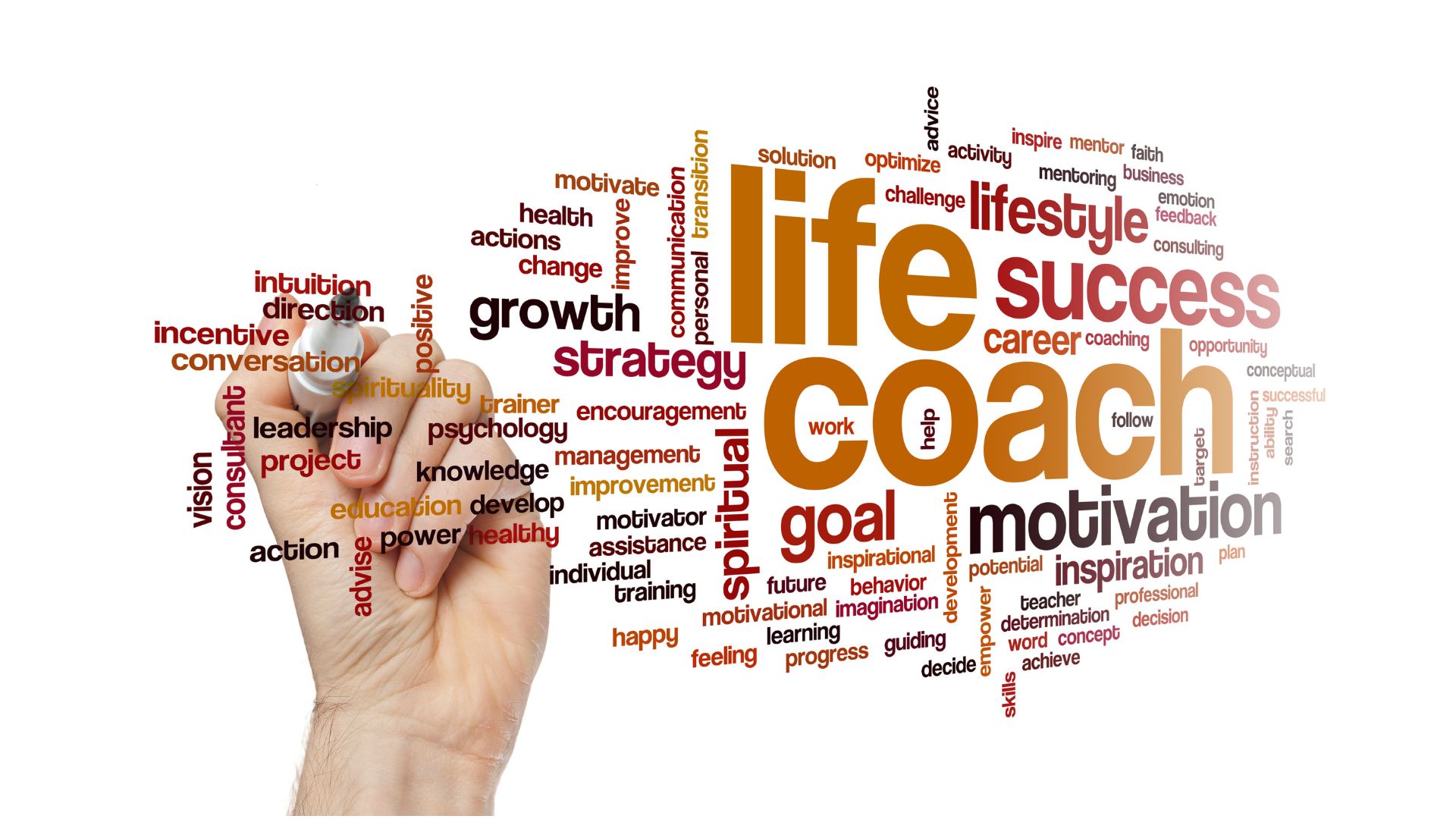
Evidence for Life Coaching in Neuroscience
There is some evidence in neuroscience that coaching offers significant benefits mentally and psychologically. I recently finished writing a book with co-writer and neuroscientist Maite Balda Ph.D. in which we explored the neuroscience and psychology of human vitality and motivation.
We discovered from the research, that when we are stressed, our neurotransmitters responsible for wakefulness are much higher, specifically orexin, nor-adrenaline, and cortisol.
This may be the reason we lie awake at night as our brains encourage us to take action to the root cause of our immediate needs.
We discovered that self-coaching before bedtime helps to reduce the stress hormones emitted by the pituitary-adrenal axis and therefore enables a good night’s sleep. Sleep, as we detailed in the book is the foundation of vitality and motivation for reasons that are quite astonishing. The power of coaching clearly backed up by neuroscience.
Watch more about the neuroscience and psychology of vitality in my article “Optimism & Determination”.
Taking the Next Step
The first step is always the most difficult, and most people need to reach a point of crisis before they take action. This is human nature.
If you are at that point, or you are feeling inspired to reach higher in your life the next step is to think of a clear goal that you would like to achieve and determine the type of coach you would like to work with e.g. a life coach, executive coach, wellness coach, etc.
A goal can be...
- Awareness
- Clarity
- Financial success
- Happiness
- Self-confidence/self-esteem
- Less stress
- Better work-life balance
The next step is to go online and shortlist the life coaches you feel you’d like to work with and decide if you would prefer a face-to-face or online life coaching experience. I would advise keeping an open mind on the medium but being focused on choosing a life coach who you can click with and feel comfortable talking.
Final thoughts
Life coaching is a powerful way to move forward in your life, achieve your goals, understand your identity and find your authentic self.
The emotional freedom, motivation, and vitality will be truly life-changing. Over 70% of coachees report a positive ROI on their coaching experience (PWC) and, in my experience, nearly all coachees go on to live happy careers and very fulfilling lives, often moving to new careers. I hope you will experience your breakthrough!
Contact me if you would like to schedule a trial life coaching session.
Still want to know more about life coaching?
Read our definitive guide to life coaching here.




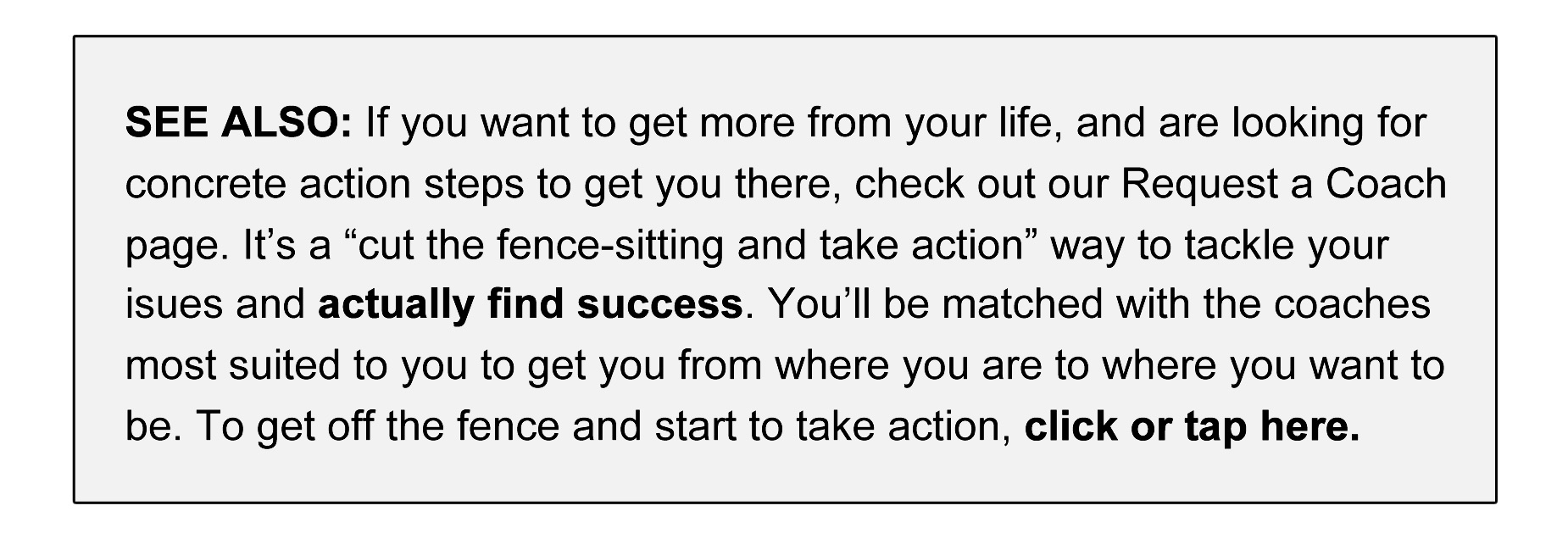























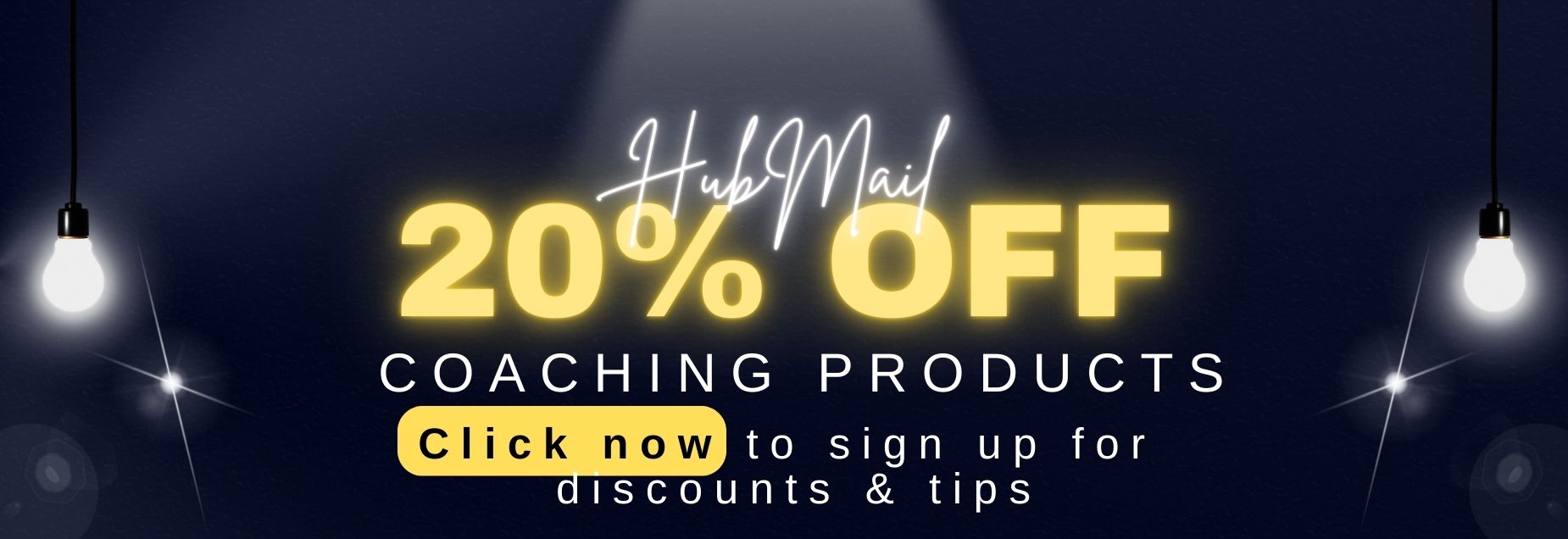
COMMENTS